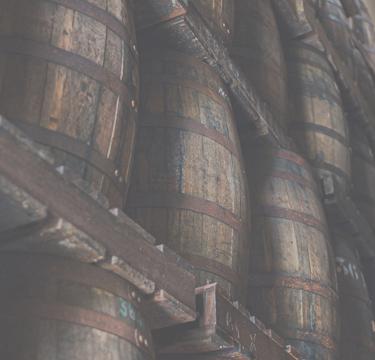

Our Expertise
THE UNIQUE TERROIR OF DEPAZ RHUMS
Since 1996, agricultural rhums from Martinique owned their own ''Appellation of controlled origin''.
The sugar cane used to make Depaz rhum is grown in a terroir which is one of a kind in Martinique: the Mount Pelée region. Here, the plants have all the ingredients they need in a tropical climate that ensures good development and allows them to offer up the best of themselves.
The combination of exceptional sunshine and abundant rainfall linked to the meteorological alchemy of the volcano and the fact that it culminates at an altitude of 1,395 meters.
A young, light and filtering soil, which imposes to the sugar cane a deep rooting and a metabolism favorable to the accumulation of sugar.
The Depaz rhums farm produces the richest sugar cane in Martinique.
Thanks to these assets, the land on which they grow has been classified since 1996 as part of the "Appellation d'Origine Contrôlée Martinique", an appellation that expresses the intimate link between the natural elements, water, sun, earth, and the know-how of the men and women of Depaz, perpetuated over the generations.

THE STAGES OF PRODUCTION OF DEPAZ RHUM
.
The sugar cane harvest
Depaz Martinique agricultural rhums are produced exclusively with extremely fresh cane sugar that are selected for their capacity to provide a rich, fruity aroma.
The harvest on the Depaz plantations starts in February when the cane sugar fields are covered in white “feathers”, the cane sugar flowers, known as “flech’kann”. The cane flowers indicate that the plant is perfectly ripe and saturated with sugar.
Cane freshness is fundamental in the manufacture of Depaz rhums. A creole expression goes: “the cane should have it’s feet in the fields and it’s head in the mill”.
In other words, once it is cut, it should be ground immediately to produce an extremely fresh juice which is the guarantee of a perfect expression of the Depaz brand.

The grinding of sugar cane
Inside the Depaz distillery, we still use traditional grinding techniques with a very old vapour machine which allows us to get the best out of the cane sugar. The canes, irrigated with the Mount Pelée spring water, are ground to obtain a rich, sweet juice called vesou, as well as a fibrous residue called bagasse. The resulting cane juice is then filtered and transferred to the fermentation tanks. The bagasse has two uses : energy and compost.
Some of the bagasse is used as a combustible for the distillery to fuel the ovens that produce the vapour for the distillation. The rest of the bagasse is mixed with organic matter to create a compost used to nourish the soils of the new cane plantations.
So the cane sugar does not only produce agricultural rhum but it also provides the distillery with a renewable, ecological energy source.

The fermentation of agricultural rhum
The fermentation is a key stage in the manufacture of agricultural rhum since it defines most of the sensory profile.
At Depaz this operation takes 48 hours compared to the 36-hour normal procedure, this guarantees the rich and powerful aromatic potential of Depaz rhums. It begins with the addition of yeasts that consume the sugar to produce alcohol.
When the sugar is completely consumed, the fermentation stops. The juice only becomes wine when it contains 5 to 7 degrees of alcohol.
The distillation can then start.

The distillation of Depaz rhum
The distillation of cane wine separates the alcohol from the cane juice.
The cane wine is put into the top of the distillation column and then moves downwards from plate to plate, as it descends it meets the vapour arriving from the base of the column. The boiling of the vapour in the liquid carries the alcohol vapour with it. This is recovered at the top of the column, then cooled.
When is comes out of the column the agricultural white rhum obtained is 70° alcohol.
The distillation column is an essential part of the process of manufacturing agricultural rhum. Its form, technical characteristics and materials used (notably copper) influence the organoleptic style of Depaz rhums.

The ageing of Depaz rhums
Close attention is paid in Depaz rhums to the selection of the casks used in the ageing process. These casks add subtle and complex woody notes to the blend, and work in harmony with the particularities of Depaz soil.
Throughout the ageing stage, the Depaz Blend Master undertakes numerous tastings so as to ensure the Depaz rhums are developing as they should.
He is also responsible for selecting the different casks and recording their age in order to create blends of the best cuvées of old Depaz rhums for delicious and unique tastes.


